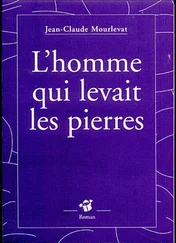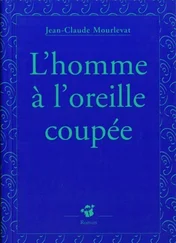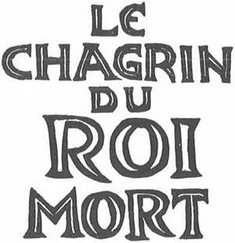Jean-Claude Mourlevat - Winter's End
Здесь есть возможность читать онлайн «Jean-Claude Mourlevat - Winter's End» весь текст электронной книги совершенно бесплатно (целиком полную версию без сокращений). В некоторых случаях можно слушать аудио, скачать через торрент в формате fb2 и присутствует краткое содержание. Год выпуска: 2010, ISBN: 2010, Издательство: Candlewick, Жанр: Старинная литература, на английском языке. Описание произведения, (предисловие) а так же отзывы посетителей доступны на портале библиотеки ЛибКат.
- Название:Winter's End
- Автор:
- Издательство:Candlewick
- Жанр:
- Год:2010
- ISBN:9780763651749
- Рейтинг книги:5 / 5. Голосов: 1
-
Избранное:Добавить в избранное
- Отзывы:
-
Ваша оценка:
- 100
- 1
- 2
- 3
- 4
- 5
Winter's End: краткое содержание, описание и аннотация
Предлагаем к чтению аннотацию, описание, краткое содержание или предисловие (зависит от того, что написал сам автор книги «Winter's End»). Если вы не нашли необходимую информацию о книге — напишите в комментариях, мы постараемся отыскать её.
Winter's End — читать онлайн бесплатно полную книгу (весь текст) целиком
Ниже представлен текст книги, разбитый по страницам. Система сохранения места последней прочитанной страницы, позволяет с удобством читать онлайн бесплатно книгу «Winter's End», без необходимости каждый раз заново искать на чём Вы остановились. Поставьте закладку, и сможете в любой момент перейти на страницу, на которой закончили чтение.
Интервал:
Закладка:
“I have no pretty kerchiefs,
No embroidered kerchiefs,
I have no beads, no.
No more grief and pain, my love,
No more grief and pain. . . .”
She sang, her voice mingling with the voice of Dora, whose hand was on her shoulder:
“In my basket, I have no chicken,
Father dear,
No chicken to be plucked,
I have no duck, no.
I have no velvet gloves,
Gloves neatly sewn, no.
No more grief and pain, my love,
No more grief and pain.”
She sang with all the others, and it was her own way of returning once and for all to the land of the living.
Helen worked in Mr. Jahn’s restaurant for a few more months and then found a job that suited her better in a bookshop in the New Town. During the next few years, she had the pleasure of seeing several old friends come into the shop, former students at the boarding school who had found out where she was. She saw Vera Plasil, now a young woman in full bloom accompanied by her husband, and a few weeks later, just as she was about to shut the shop, in came Catharina Pancek, who had hardly changed.
Milena Bach and Bartolomeo Casal stayed together. Right into the evening of their lives they were a luminous, inseparable couple. Bart was a brilliant university student and became a famous lawyer. As for Milena, she didn’t waste her talent. Dora found her a singing teacher and made her work hard. Over the years her natural voice gained in depth and balance, and she became the incomparable singer that she had always promised to be. She sang in the most famous theaters in the world, but she never forgot her origins, and every season she gave a recital in the Opera House of the capital city, the theater where her mother had once sung. Helen reserved her seat for this occasion months in advance, and was always there sitting in the front row.
Even with a symphony orchestra behind her, Milena never failed to give Helen a private, loving little wave from the platform. It said: Do you remember the school yard? Do you remember the icy dormitory and the long winters? And then her voice rose, vibrating with humanity. Helen let that familiar yet mysterious voice carry her away, as you might let yourself be carried away on a ship. And during her voyage she let the secret images of her heart come before her eyes: the great, tranquil river flowing under the bridges, the infinite love of the consolers, the faint memory of her dead parents, and then, always and forever, the smiling face of a boy with brown curls.

Evening was falling in the garden. Helen breathed in the honeyed scent of the clematis with pleasure. She slowly finished taking the washing off the line. It was going to be a mild night, and the young woman was in no hurry to go in.
“Mama, it’s for you!” a little girl suddenly called to her from the open sitting room window.
Leaving her laundry basket under the line, Helen went in. The child held out the receiver, forming the silent syllables with her lips: “A gentleman.”
“Thanks. Go and put your nightie on. I’ll come in a minute.”
She didn’t know the deep male voice. “Is that Helen Dormann?”
“Yes,” said Helen, although she had changed her surname some years ago.
“Hello, Helen! This is Octavo. I’m so pleased to have found you — I had difficulty finding your number.”
“Octavo?”
“That’s right, Paula’s Octavo. You remember?”
Slowly, she sat down. She hadn’t seen Paula for ages. A hundred times she’d told herself she would go and visit her, and a hundred times she had put it off until later. The bookshop, her children, the distance . . . As for Octavo, she had lost track of him entirely.
“Good heavens, Octavo!” she cried. “How are you? It feels so odd to hear you with a grown-up voice.”
“I’m calling from the village,” he said. “Paula has just died. I thought you’d want to know.”
She caught the bus next morning. All the way, memories were overwhelming her, and she couldn’t manage to read the novel she had brought. Octavo welcomed her to the little brick house in the consolers’ village, Number 47. She would never have recognized him. He was tall and strong; his chin and cheeks prickled her when they kissed.
“Come upstairs. She’s on her bed there. As you’ll see, she’s at peace.”
Paula lay there with her hands crossed over her breast. The perfect calm of her face was as reassuring as ever and seemed to be telling those who came to pay her a last visit, You see, it’s not too bad, nothing to make a song and dance about! Helen, who had shed all her tears during the journey, was beyond grieving now. She kissed the forehead of the woman who had been like a mother to her and sat at her bedside for a long time.
She helped Octavo with the funeral arrangements. He had a car, and she was to go back to the capital with him when it was all over.
On the morning of their departure, she asked him to wait for another hour. She went down the hill and easily found the exact place where she and Milena had met Milos and Bart fifteen years ago. It seemed like yesterday. She followed Donkey Road and crossed the bridge, marveling at the infinite patience of the four stone equestrian statues. The sun was hot. She slung her sweater around her shoulders and walked on with her arms bare. The water of the river shone.
She found the barred gates of the boarding school open and walked in. The Skeleton’s old-fashioned lodge was still there. As she passed it, Helen felt goosebumps, almost expecting to hear the woman’s acid voice all of a sudden: “And where do you think you’re going, young lady?” But there was no sound apart from the twittering of sparrows in the trees in the yard.
Following the wall of the building, she found the refectory door unlocked and went in.
“It’s closed. Are you looking for something?”
The place was unrecognizable without its tables and chairs. Reels of electric cable lay around on the floor.
“Can I help you?” the electrician asked, screwing a switch into place.
“Yes . . . no. That is, I was a student here long ago . . . at the boarding school. I just wanted to look.”
“Ah, yes, but it’s closed. The holidays, see?”
“Of course. I’m so sorry. I don’t want to bother you. Do you happen to know if it’s possible to get through that little door at the back there?”
“The door to the cellar? I don’t know. But there’s a bunch of keys hanging from the nail there. If you want to try it. . . . Here, you can borrow my flashlight. It’s in the toolbox there.”
The third key she tried opened the lock. Helen turned the beam of the flashlight on the darkness and went down the stairs. Once at the bottom, she went along the tunnel. Its ceiling was covered with dusty cobwebs. The door of the detention cell, torn down and smashed to pieces, barred her way. She stepped over it. A smell of mold met her nostrils. The bunk was broken too, lying flat on the floor. A rusty bucket with holes in it lay in a corner.
There was no picture left, no Sky, nothing.
The birds had flown away. All of them.
The hardest moment, and Helen hadn’t expected it, was when Octavo had to turn the key and lock up Paula’s little house behind him. Neither of them could hold back their tears on the steps outside.
But they talked cheerfully on the drive back, telling each other about their lives and recalling the past. “Do you remember about going to Random?” asked Helen. “And a fox — a foxess?” Octavo, who had forgotten, roared with laughter. He was an amusing man, very vivacious.
Читать дальшеИнтервал:
Закладка:
Похожие книги на «Winter's End»
Представляем Вашему вниманию похожие книги на «Winter's End» списком для выбора. Мы отобрали схожую по названию и смыслу литературу в надежде предоставить читателям больше вариантов отыскать новые, интересные, ещё непрочитанные произведения.
Обсуждение, отзывы о книге «Winter's End» и просто собственные мнения читателей. Оставьте ваши комментарии, напишите, что Вы думаете о произведении, его смысле или главных героях. Укажите что конкретно понравилось, а что нет, и почему Вы так считаете.












